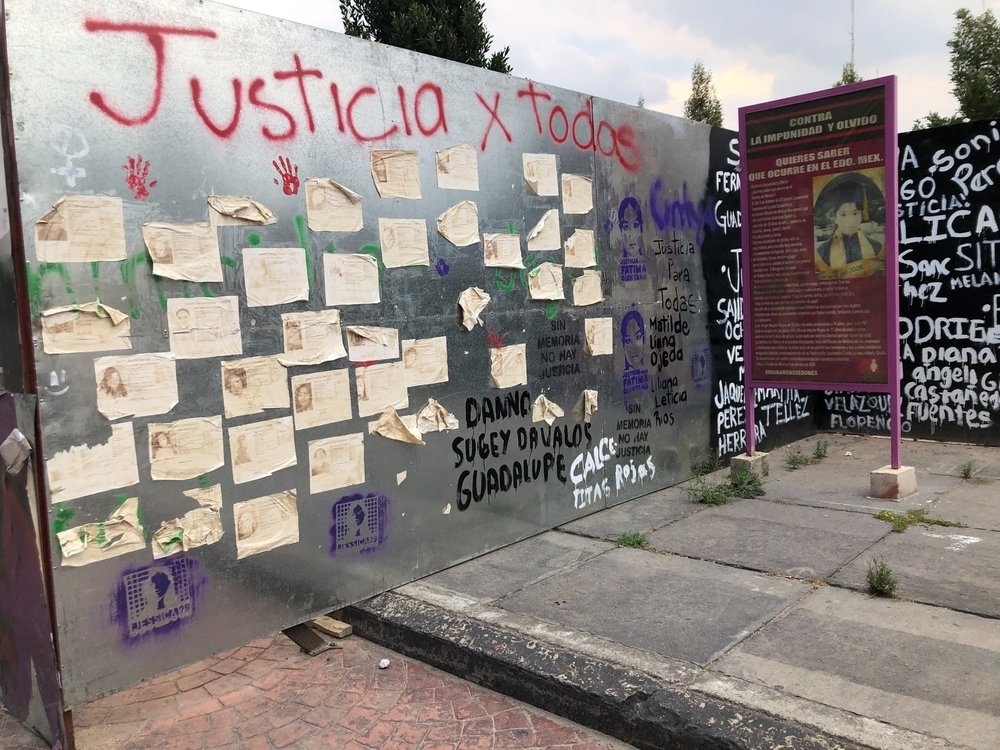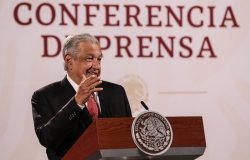The Elephant in the Room in Mexico's Upcoming Elections: Will Participants in the Democratic Game Finally Confront the Issue of Impunity?

Shutterstock.com, Daniela Margon
In the year 2024, Mexico will celebrate its fourth federal election process (2006, 2012, 2018, and now 2024), formally existing as an electoral democracy. This comes after the democratic transition of power from the PRI party to the competing PAN party in the year 2000, ending 70 years of authoritarian rule.[1]
Paradoxically, in 2007—following the country's first election post the 2000-year transition—events of lethal violence and disappearances –among other types of violence– began to increase dramatically. Despite being, by all formal accounts, an electoral democracy, during the last 17 years Mexico has been underdoing -what various human rights monitoring international bodies have characterized as- a human rights violations crisis.[2] What happens when what is meant to be extraordinary—a crisis—becomes a regular part of daily public institution operations and, more significantly, the everyday lives of the country's most vulnerable citizens: children, teenagers, women, journalists, human rights defenders, and even local politicians?
The causal explanations that have been put forward to address this disconcerting coexistence between “yes, we live in a democracy” but “it is actually a very violent one” are manyfold. We can find some common ground in, at least, four: (i) the tip of the sword – the intensification, starting with President Calderón’s term (2006-2012), of the deployment of the military forces -and military alike responses from federal and state law enforcement agencies- to tackle with crime-related issues; (ii) an uncommon response – the fact that, somehow surprisingly according to the study of traditional organized crime responses, organized crime actors fought back with “bullets and bribes[3]” (Lessing, 2017); (iii) the opportunity factor – the increase in the availability of illegal weapons flowing from the US to Mexico, due to relaxed gun control policies in the Northern neighbor providing for more deadlier tools to fight these fights and (iv) the paradox of local democratization itself in fragile contexts – where increasing democratic competition has tended to destabilize collusive arrangements between the state and organized crime, leading to large-scale criminal violence.
Against this backdrop, Mexico enters the 2024 national election process.[4] Here, I want to highlight two approaches/findings in projects stemming from the work of “JT MX”, the think and do tank on impunity issues in the country that I have leaded for the last two years. First, at the micro cosmos level. By partnering with the Guernica Centre for International Justice to document and trace trajectories of violence in parts of a specific state in the country (Nayarit, Mexico) for a relatively protracted period (2011-2021) we have gained some understanding, still superficial, on how violence unfolds and operates in local realities. Suffice to say that, in many realms of the country, violence establishes the real rules of the game and the resort to it coalesces private, public, and illegal interests. Rights exercise is heavily restricted in these terrains. That should concern us. Second, at the macro/national level, a recent study by JTMX explores institutions established in the past decade (2013-2023) to address aspects related to impunity for gross human rights violations. These include national systems like the search for missing persons (2017) and victim support (2013), as well as presidential commissions addressing specific situations, from the Ayotzinapa case (2018) to the extensive period of political violence from 1965-1990 (2021).[5]It goes without saying that these institutions are merely the pinnacle of claims from victims, and movements, in seeking improved institutional tools to precisely address their demands for redress.
However, despite partial solutions, even for those receiving greater support from the Federal Government in the last term, such as addressing disappearances, initiatives have begun to recede, as a questionable strategy to reduce reported disappearance numbers has exemplified. The intertwining of impunity with the country's political system raises doubts about the commitment of the three competitors to the Presidency of the country to address the elephant in the room. This year will be key. And time is pressing.
[1] "Some authors position the so-called 'Mexican democratic transition' not as a specific point in time, but rather as an extended process encompassing various efforts of gradual democratization, particularly from the year 1977 to 1997. See: Woldenberg, J. (2012). Historia mínima de la transición democrática en México. El Colegio de México.
[2] In 2015, the Interamerican Commission on Human Rights (IACHR), the autonomous body of the Organization of American States (OAS) charged with monitoring the human rights situation in the hemisphere, labeled the -even by then- current situation in Mexico as one composed by many human rights crisis, from disappearances extrajudicial executions to insecurity and access to justice. (See: IACHR – “Human Rights Situation in Mexico”, 2016). Flashforward, in 2022, the UN Committee Against Enforced Disappearances (CED), the body of independent experts which monitors the implementation of the Convention for the Protection of all Persons against Enforced Disappearance by the State Parties, found that “disappearances in Mexico continued to be widespread over much of the State’s territory and that almost absolute impunity and revictimization prevailed.”(See: CED – Report of the Committee on its visit to Mexico under article 33 of the Convention, 2022).
[3] Lessing, B. (2017). Making Peace in Drug Wars. Crackdowns in Latin America.
[4] One that entails, just to stick to two core type of events, almost 100,000 people that remain disappeared and almost 400,000 victims of homicide, according to official data provided by national authorities, during the 2007-2023 period. Mexico’s National Search Commission (CNB) – 98,425 missing people (November, 2023); Mexico’s Executive Secretariat of the National System of Public Security. – 392,914 homicides (September, 2023)
[5] ¿Mecanismos extraordinarios? Los sistemas nacionales de atención a víctimas y de búsqueda en México: una discusión desde la teoría de la justicia transicional. ("Extraordinary Mechanisms? National Systems for Victim Assistance and Search in Mexico: A Discussion from the Transitional Justice Theory."). December, 2023.
The author would like to thank Natalia Roca and Cristian Lopez, collaborators at JTMX, for their insights in the preparation of this article. The author also wishes to express gratitude to the forum convened by the 'Future of Human Rights and Governance' (FORGE) Conference in NYC in early November 2023, precisely for discussing the challenges of democratic renewal in the current context of the global struggle for rights. The reflections presented here are also shaped by the valuable contributions of the participants with whom the author has had the privilege to exchange ideas.
About the Author


Mexico Institute
The Mexico Institute seeks to improve understanding, communication, and cooperation between Mexico and the United States by promoting original research, encouraging public discussion, and proposing policy options for enhancing the bilateral relationship. A binational Advisory Board, chaired by Luis Téllez and Earl Anthony Wayne, oversees the work of the Mexico Institute. Read more










